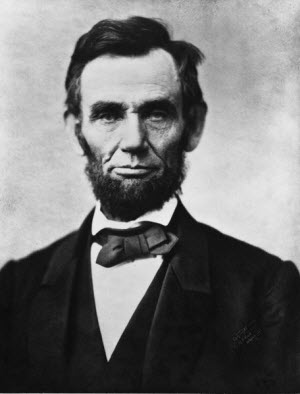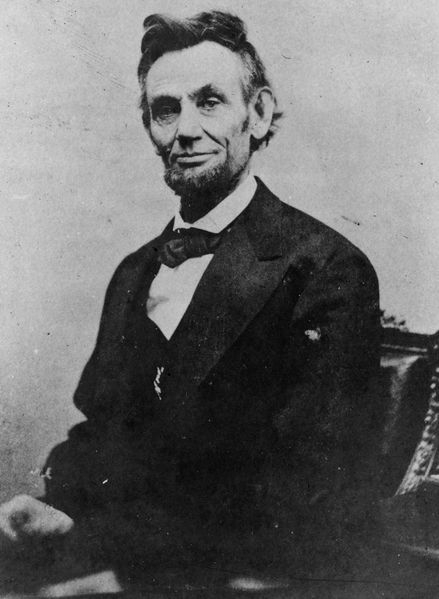LINCOLN'S STORY TO PEACE COMMISSIONERS.
Among the reminiscences of Lincoln left by Editor Henry J. Raymond, is the following:
Among the stories told by Lincoln, which is freshest in my mind, one which he related to me shortly after its occurrence, belongs to the history of the famous interview on board the River Queen, at Hampton Roads, between himself and Secretary Seward and the rebel Peace Commissioners. It was reported at the time that the President told a "little story" on that occasion, and the inquiry went around among the newspapers, "What was it?"
The New York Herald published what purported to be a version of it, but the "point" was entirely lost, and it attracted no attention. Being in Washington a few days subsequent to the interview with the Commissioners (my previous sojourn there having terminated about the first of last August), I asked Mr. Lincoln one day if it was true that he told Stephens, Hunter and Campbell a story.
"Why, yes," he replied, manifesting some surprise, "but has it leaked out? I was in hopes nothing would be said about it, lest some over-sensitive people should imagine there was a degree of levity in the intercourse between us." He then went on to relate the circumstances which called it out.
"You see," said he, "we had reached and were discussing the slavery question. Mr. Hunter said, substantially, that the slaves, always accustomed to an overseer, and to work upon compulsion, suddenly freed, as they would be if the South should consent to peace on the basis of the 'Emancipation Proclamation,' would precipitate not only themselves, but the entire Southern society, into irremediable ruin. No work would be done, nothing would be cultivated, and both blacks and whites would starve!"
Said the President: "I waited for Seward to answer that argument, but as he was silent, I at length said: 'Mr. Hunter, you ought to know a great deal better about this argument than I, for you have always lived under the slave system. I can only say, in reply to your statement of the case, that it reminds me of a man out in Illinois, by the name of Case, who undertook, a few years ago, to raise a very large herd of hogs. It was a great trouble to feed them, and how to get around this was a puzzle to him. At length he hit on the plan of planting an immense field of potatoes, and, when they were sufficiently grown, he turned the whole herd into the field, and let them have full swing, thus saving not only the labor of feeding the hogs, but also that of digging the potatoes. Charmed with his sagacity, he stood one day leaning against the fence, counting his hogs, when a neighbor came along.
"'Well, well,' said he, 'Mr. Case, this is all very fine. Your hogs are doing very well just now, but you know out here in Illinois the frost comes early, and the ground freezes for a foot deep. Then what you going to do?'
"This was a view of the matter which Mr. Case had not taken into account. Butchering time for hogs was 'way on in December or January! He scratched his head, and at length stammered: 'Well, it may come pretty hard on their snouts, but I don't see but that it will be "root, hog, or die."'"
Abraham Lincoln | Events | People | Abraham Lincoln Quotes |
Quotations About Abraham Lincoln | Abraham Lincoln Photo Gallery | Abraham Lincoln Timeline |
Privacy Policy | About Us | Site News | Site Map |
Anecdotes and Stories About Abraham Lincoln


